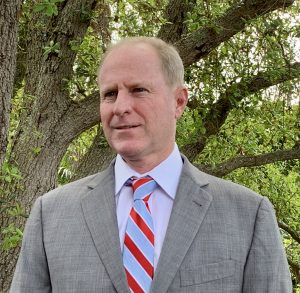By Terry Gibson, North Swell Media & Consulting
In the final weeks of the 2021 legislative session, the Florida Legislature unanimously passed the Statewide Flooding & Sea Level Rise Resilience bill, legislation championed by the DeSantis Administration and Republican leadership in the state House and Senate.
This legislation marks a watershed moment for the GOP, which has been loath to acknowledge the damage from the warming climate. Many advocates, including me, have long argued that coordinated investments in infrastructure and ecosystems would be wise fiscal stewardship.
They can spare tax dollars, human misery, and damage to Florida’s attractions. By prioritizing information gathering and spending in science-based, coordinated ways, the new law could set Florida’s new Resilience Program off on a promising course.
Resilient Florida Grants Program
The law establishes the Resilient Florida Grants Program, which allows the Florida Department of Environmental Protection (DEP) to provide grants to counties and municipalities to “fund community resilience planning and necessary data collection for such planning.”

The grants may provide for the comprehensive plan amendments already required by law.
Vulnerability assessments must include the entire jurisdiction. They must rely on a uniform Digital Elevation Model and include vulnerability analyses of infrastructure such as transportation hubs and storm and wastewater systems. They must also include facilities such as schools and hospitals and parks, wetlands and historic places.
Grantees must produce a detailed report to DEP that includes maps, geospatial data and flooding depth estimates using two sea-level rise estimates. The report must include “at least two planning horizons for the years 2040 and 2070.”
Statewide Flood Vulnerability and Sea-Level Rise Data
The legislature requires that the DEP complete a comprehensive dataset by July 2022 that relies on the community resilience assessments and other data. So, local information should flow to Tallahassee and provide fine-scale data to inform a statewide flood vulnerability and sea-level rise assessment due by July 2023. That assessment will be updated every five years.
Statewide Flooding and Sea-Level Rise Resilience Plan
By the end of this year, DEP will develop resilience plans on three-year planning horizons. This provision earned the bill the moniker, “the always ready bill.”
The resulting plans will recommend projects submitted by municipalities, counties, water management districts and flood control districts. They will include the amount of cost sharing if applicable. Small and financially challenged cities and counties are exempted from cost-share requirements.
Funding Eligibility
Over the next four years, the “Resilient Florida” program pledges to invest $1 billion from the state documentary stamp tax to pay for bonds for projects. The Legislature will have to allocate any additional money.
The law requires the DEP to implement a scoring system for projects based on risks identified by the local and statewide assessments. They will factor how well the project will protect regionally significant assets or local critical assets, and how well the project improves existing flood-control systems. DEP must also score the projects based on existing flooding severity, whether the money will be spent efficiently, and based on environmental enhancements. Other considerations include the availability of local, state and federal matching funds, previous state commitments, and the “extent to which the project assists financially disadvantaged communities.”
Aesthetic vegetation, recreational structures and activities, and navigational improvements are not eligible.
Regional Resilience Entities
With legislative authorization, the DEP may pay for regional entities that carry planning responsibilities for resilience and coordinating solutions. The money may be used for technical assistance, project proposal development, and coordinating vulnerability assessments that apply to several jurisdictions.
Florida Flood Hub for Applied Research & Innovation
The bill establishes a “Flood Hub” at the University of South Florida College of Marine Science “to coordinate efforts between the academic and research institutions of the state.”
Responsibilities include performing a “gap analysis” of data needed to inform the statewide flood vulnerability assessment, developing open-source hydrologic models, and coordinating research funds. They also include developing flood forecasting programs, assisting with workforce training, and developing partnerships with other research and innovation leaders.
The Hub must present an annual report to the state about goals and progress.
Office of Economic and Demographic Research Requirements
This office must conduct an annual assessment of the state’s water resources and conservation lands. It must ferret out overlaps of expenditures and analyze future spending by federal, state, regional, and local governments.
Conclusions
These are just some of the reasons to be bullish about Florida’s Resilience Program. The final version is available here. Public engagement is critical if we are to implement effective and efficient projects that protect and restore natural assets and upgrade infrastructure.
Terry Gibson is a journalist and advocate with more than 25 years’ experience with issues related to coastal management, Everglades Restoration, and water infrastructure. He is based in Jensen Beach.
“The Invading Sea” is the opinion arm of the Florida Climate Reporting Network, a collaborative of news organizations across the state focusing on the threats posed by the warming climate.



